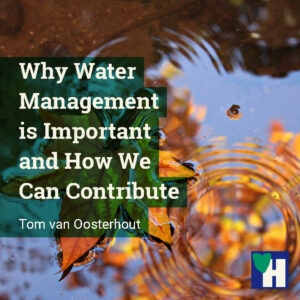
Water management is important. This is a conviction we all share. Water management is important because we need clear and clean, in other words, potable water.
At the same time, water management is complicated. It’s complicated because it’s a cyclic and very vulnerable process. For example, our water is purified twice, before and after we use it.
This is a costly and peculiar way of managing something which is so important to us. Fortunately, we can make a substantial personal effort to improve water management.
Some of the links are affiliate links. As an affiliate associate, we earn a commission when you purchase any of the products offered through the shared links at no extra cost for you. This helps us maintain this website.
Table of contents
Why water management is important
Water management is important because our lives depend on it. Moreover, water is used in processing almost all things we like (for example food) and things we don’t like (for example excrements). With an eye on our budget and the environment, we personally can contribute substantially to better water management.
Never-ending cyclic process
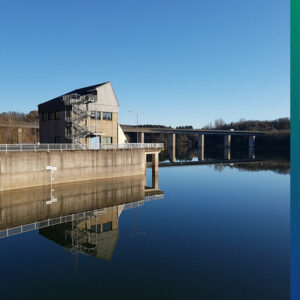
Urbanization, industrialization, and modern agriculture offer significant challenges to water management. Water must be transported over large distances in huge quantities.
Before consumption, water must be purified to a level where it’s potable. From the purification plants, potable water is distributed through complicated networks to our homes and the places where we work.
Next, the potable water used is removed through the sewer system. The sewers transport our wastewater to water treatment plants. Water management is important and a challenge because it is a never-ending, cyclic process.
The costs of this cyclic process, the costs of water management are substantial. Our dependence on water makes water management important and vulnerable at the same time.
Potable water
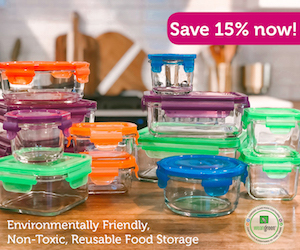
Potable water is water that is safe for human consumption. This means that the water is free from impurities, such as harmful bacteria, chemicals, parasites, plastics, medicine, and other substances which are alien to clean, clear and healthy water.
Enormous amounts of money have been invested to manage potable water. We use substantial amounts of potable water for drinking and preparing food.
However, we also use potable water for flushing toilets and washing and cleaning. Which is understandable, but rather peculiar.
Whether at home, at the office, in factories, and in agriculture, everywhere potable water is used. In organic agriculture, this is even mandatory.
Organic water does not exist

There exists no such thing as organic water. According to the EU rules, water is a non-agricultural product. But this only means that water can not be sold as organic.
As well on the input as the output side of organic farming, water standards are most significant. At the input side of organic farming, only potable water can be used. And it must be used in a responsible way.
The water used for irrigation must be free from contamination. It must also be regularly tested to potable standards. The testing includes potential contaminants from livestock, industry, conventional farming, runoff from roads, etc. In practice, this means that the water used for irrigation in organic farming must be subject to ongoing monitoring.
Yet, there is more. Organic produce can only be washed in fresh potable water. Not even water used for washing conventional farming produce is allowed.
Separate water systems must be used. And even upstream and downstream groundwater aquifers must be checked and reported.
Related: The Advantages of Organic Farming Vastly Outweigh those of Conventional Farming
Respect for nature
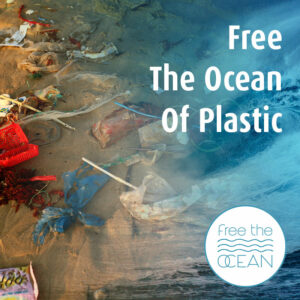
On the output side of the water use in organic farming, it is even more complicated. One of the most significant standards of organic farming is respect for nature, its systems, and its cycles. Moreover, organic farming must enhance the quality of the soil, the water and the air.
This is important because organic farming must contribute to the health of plants and animals. Organic farming is aimed at balancing all the natural elements within the ecosystem it uses.
To avoid a runoff, manure must be applied with the utmost care. A clear estimate must be made of the intake capacity of the soil. An assessment of run-off to groundwater must be included. Unfavourable weather conditions must also be taken into account.
Related: Water Conservation Management is Crucial for a Sustainable Agriculture
Dead and living water
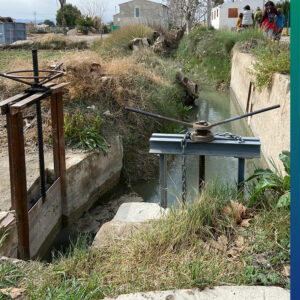
On a cold Sunday morning in February, we participated in a guided walk through a very notable example of water management near where we live, the Huerta de Monteagudo (the Arable Land of the Sharp Mountain). In this agricultural area, water management is extremely important.
The Huerta de Monteagudo lies at the outskirts of the city of Murcia, Spain. The mountain can be spotted in most parts of the city. On top of it stands a huge statue of Jezus Christ. Similar to the one that dominates Rio de Janeiro in Brazil.
Already for ages, the Huerta de Monteagudo is famous for its water management. The Romans developed an ingenious system of canals, and the Arabs improved it. The system is still operational.
The characteristic of the water management system of the Huerta de Monteagudo is that different canals are used for irrigation and drainage. Irrigation canals are called acequias. The water flowing through these canals is called aguas vivas, living waters.

Drainage canals, collect water from the fields and from flooding. These are called azarbes. The water flowing through these canals is called aguas muertas, dead water.
There is even a spot where ‘dead water’ turns into ‘living water’. This miracle happens at the Partedor de la Cueva (Distributor of the Cave). From Monday through Thursday, the ‘dead water’ of the Azarbe de Monteagudo, which is fed by the river Segura, flows through the higher Canal de la Cueva.
From Thursday until Sunday the water flows through the lower canal. In both cases, it is used as irrigation water for the land and thus called ‘living water’. This system of canals and the way it’s operated guarantees that every field in the huerta receives an equal share of water.
How we can contribute
That water management is important is one thing. Another is that water management costs a lot of money. Together we have to pay these costs.
However, it’s not only to do our wallet a favour that we need to manage the water we personally use with great care. Water is always tight. Specifically where we live in Spain. There are, however, serious possibilities to better manage our water usage.
Related: Different Kinds of Water, Does it Matter which Water we drink?
Save tap water
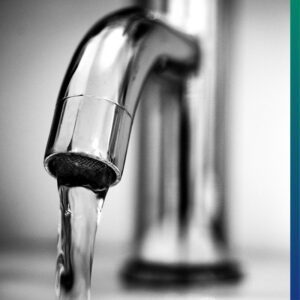
How many times a day do we wash our hands? I don’t mean seriously with soap and all. But just a quick rinse of our hands or a cup or glass under the tap.
We didn’t count the number of times we washed something under the tap. We simply put a 10-litre bucket under it and counted the litres of water we saved. At least 2 times a day we fill the bucket.
The water we save in the bucket is used to water the compost pile. In a dry climate such as ours, our compost bin needs to be watered regularly.
Save shower water
I don’t like a cold shower. But the shower water does not heat up instantly. So I used to let the water run away until it was warm.
Not anymore. We have a watering can next to the shower. Before I put my head under the shower I first put the showerhead in the watering can. I stop the tap when the water is warm. The shower is now ready for me.
By the way, our showers are always very short. Never longer than 5 minutes. We also don’t mind skipping a shower now and then. We’re usually clean enough to be able to live without a shower for a couple of days.
The shower water saved is used to water pot plants in the garden.
Save bottled water
We never buy bottled water anymore. We use a filter can to clean the not so safe Spanish ‘drinking’ water from our tap.
This filtered water we also use to make tea and coffee. We always take the filter with us when we travel for a longer time.
For short trips, we use glass bottles, which we fill with filtered water. The filters we use in our filter are recycled. We can send them to the company that produces the filters. The company even takes care of the postage costs.
Save more water
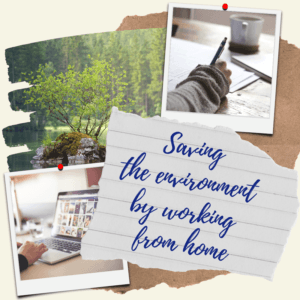
There are more options, from easy to more complicated:
- We don’t flush the toilet every time we pee. When there is too much water saved from the shower to water the plants, the excess we also use to flush the toilet.
- Put a savings button on the flush tank of the toilet. Saves a lot of water. In the Netherlands we had a flush tank with enough space to put 2 closed bottles of water in it, which saved 2 liters of water each time.
- Take away the gutters from the roof. Or catch the water of the gutters in a barrel. This water can be used for irrigating the garden. When it rains a lot where you live, try to catch the roof water in a large tank and use this water to shower or for the laundry.
- Don’t pave your garden with tiles or stones or grass. Use as many a variety of plants as possible. This is good for biodiversity and the water management of your garden and its surrounding areas.
- Buy economical (dish-) washing machines with at least one eco-program. And use this program.
- There are a substantial amount of greywater treatment systems you can install at home. Greywater is the water from the shower, the (dish)washing machine and the sinks in the house (see the attached video).
Related: Collect Rainwater Safely and Effectively and Save on your Water Bill
Why water management is important
No matter how small your contribution, in water management every drop counts. Water management is important. Not just for our wallets but also for the environment.
We try to avoid spillage, to use water wisely. What we are most keen about is that we don’t pollute the water. In the long run, this saves a lot of purification efforts down the pipeline of the sewer system.
Do you have more suggestions to better manage the water we personally use? Please let us know in the comment box.
